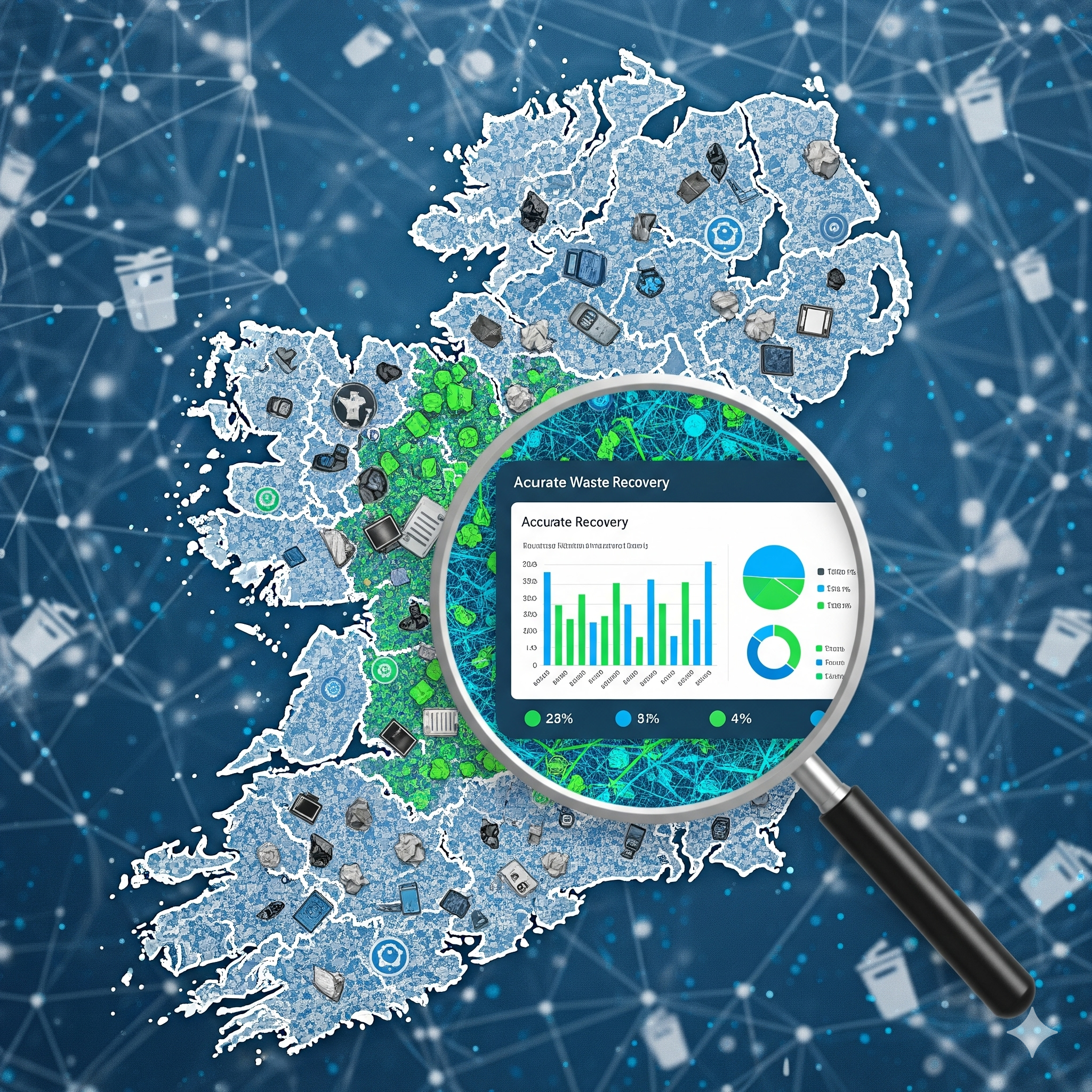Evidence-First Construction: Guides for Developers, QS & Local Authorities
Practical, policy-aware white papers on ditching paper dockets, speeding valuations, and reducing disputes—aligned with Irish & EU expectations.
Book a DemoTraceability That Works: Practical Takeaways from Finland’s SIIRTO
Ireland’s annual reporting and Finland’s SIIRTO seek the same end: lawful transfer and better environmental outcomes. SIIRTO’s per‑load, real‑time approach closes enforcement gaps and builds project‑level assurance. Irish contractors can adopt this operating model today inside Hub360/Tipper—capturing evidence once in the field, generating live KPIs, and exporting polished registers for clients and regulators while remaining compliant with year‑end submissions.
Assuring Accuracy in Ireland’s & Waste Recovery Statistics
How data is generated, where it can fail, and how digital audit trails strengthen the reported 90%+ recovery figure—while shifting more tonnage to high‑quality recycling.
Time, Transparency, and Trust — How Digital Records Transform QS Work and Reduce Construction Disputes
Irish construction is under pressure. Delays, disputes, and inefficiencies cost the industry millions every year. According to PwC’s Irish Construction Survey 2023, 77% of contractors reported project delays caused by supply chain and record-keeping issues.
Building Smarter: A Digital-Led Approach for Developers and Local Authorities
Across Ireland and the EU, public policy is driving construction toward a digital-first future. The move away from paper is no longer optional: EU directives require structured digital invoicing, Ireland is embedding digital procurement standards, and the UK will mandate digital waste tracking from 2026 — with Ireland expected to follow under EU circular economy targets.
From Paper to Digital: Smarter Record Management for Developers
Working smarter - Developers operate with multiple subcontractors, demanding clients, and tight reporting cycles. Paper-based dockets create avoidable admin for QS and finance, slow approvals, and fill storage rooms. This guide outlines how moving to verifiable digital records saves time, reduces errors, and modernises operations—with a practical view of what “good” looks like and how to get started.
Smarter Valuations, Stronger Evidence: How Digital Records Empower QS Teams
Quantity Surveyors (QS) are the financial backbone of construction projects. From cost planning to valuations, from subcontractor management to dispute resolution, their role demands accuracy, efficiency, and defensible records. Yet many QS teams still depend on paper dockets and manual reconciliations — a process that consumes valuable time and leaves gaps in the audit trail.
Digital record capture changes this. By logging loads, deliveries, and site data in real time with time/GPS stamps, QS teams gain transparent evidence that reduces queries, speeds valuations, and strengthens decision-making. For developers, this means projects run smoother, valuations move faster, and disputes are minimised.
Closing the Loop: Article 27/28, Site‑Won Asphalt & Digital Transparency
Ireland’s push toward a circular economy in infrastructure is no longer aspirational — it’s mandated. Under Article 27/28 of the European Waste Framework Directive and EPA criteria, site-won asphalt (road planings) can be designated as a by-product, not waste, enabling legal reuse in road construction. Transport Infrastructure Ireland (TII) is embedding these principles into procurement and asset management, actively encouraging the reuse of planings and other materials.
But in practice, uptake has been uneven. Why? Because while the environmental and cost benefits are clear, many developers and contractors struggle with the evidence chain: proving that site-won asphalt meets compliance criteria, is handled responsibly, and is suitable for reuse.







